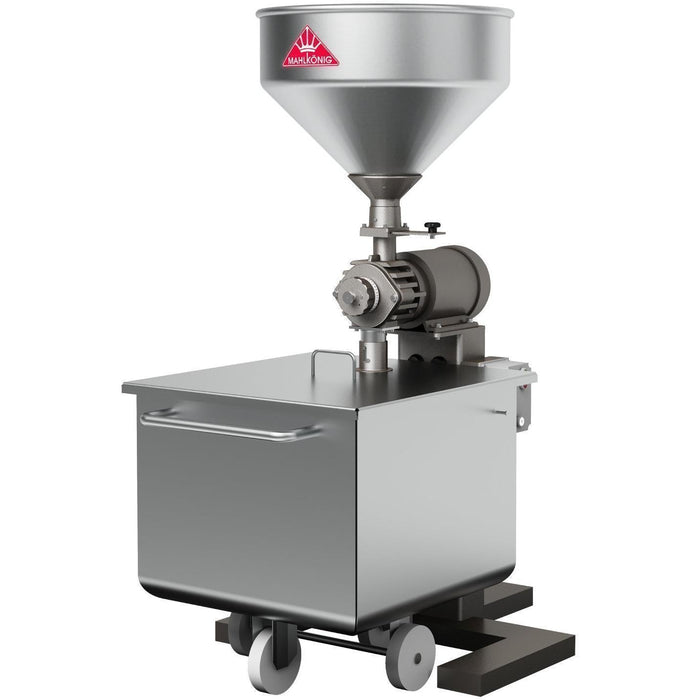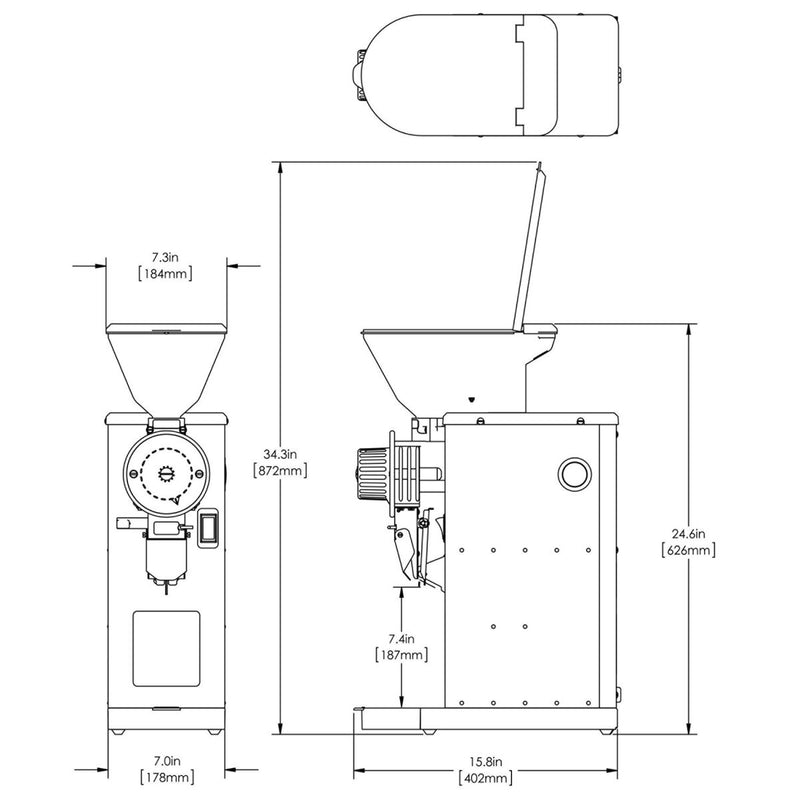Industrial Coffee Grinder: Finding the Right Fit for Your Shop
Industrial Coffee Grinder: Finding the Right Fit for Your Shop
Blog Article
Industrial Coffee Mill Overview: Increase Effectiveness and High Quality
In the affordable landscape of coffee manufacturing, selecting the appropriate commercial coffee grinder plays an essential role in boosting both performance and product high quality. Recognizing the subtleties of numerous grinder kinds and vital functions-- such as adjustable grind settings and robust building and construction-- can substantially influence the last taste account of the coffee.
Comprehending Grinder Kinds
When picking an industrial coffee mill, comprehending the different kinds offered is vital for maximizing both flavor removal and functional performance. The two key kinds of grinders are blade mills and burr grinders.

Eventually, choosing the right sort of mill is essential to keeping top quality and performance in coffee manufacturing, making it essential for companies to spend in top notch burr grinders for optimum results.
Key Functions to Think About
Choosing a commercial coffee mill needs mindful factor to consider of several key attributes that can dramatically influence both performance and the general coffee experience. One of the main aspects to evaluate is the grinding mechanism. Burr mills are typically chosen over blade grinders, as they provide a constant work dimension, which is essential for ideal removal and flavor.
Another essential function is the mill's ability. Depending on the quantity of coffee you require to procedure, select a design that can handle your requirements without sacrificing speed or quality. In addition, think about the grind setups offered. A flexible mill with several setups enables you to customize the work dimension to different brewing techniques, enhancing the coffee's flavor profile.
Evaluate the mill's noise degree, particularly in a hectic coffee shop or production atmosphere, where extreme sound can be disruptive. Spending in a mill that balances these attributes can greatly boost both operational efficiency and the high quality of the coffee served.
Optimizing Grinding Refine
To accomplish the best results in coffee prep work, optimizing the grinding process is vital. The grind dimension considerably influences removal, taste, and total top quality of the brewed coffee.


Additionally, keeping track of the grinding rate can enhance the procedure. Slower grinding frequently produces much less warm, preserving delicate flavors and fragrances. Conversely, faster grinding might produce extreme heat, negatively affecting the coffee's top quality.
Maintenance and Care Tips
Correct upkeep and treatment of commercial coffee mills are essential for making certain optimal performance and durability. Routine cleansing is the structure of upkeep; residue buildup can impact taste and grinding efficiency. It is advisable to cleanse the mill after each usage, cleaning down the exterior and getting rid of any type of coffee grounds from the find more burrs.
In addition, evaluate the grinding burrs for damage. Plain burrs can endanger work consistency, so they must be changed as essential. Industrial Coffee Grinder. Periodically adjusting the grinder is additionally crucial, as this preserves the wanted work size for various brewing approaches
Lubrication of moving parts ought to be performed according to the producer's requirements, as this decreases friction and prolongs the life of the devices. It is necessary to make use of food-grade lubricants to make sure safety and security and compliance with wellness guidelines.
Last but not least, maintain the mill in a secure and completely dry setting to prevent rust and corrosion. By sticking to these maintenance and treatment pointers, operators can improve the efficiency of their industrial coffee grinders while ensuring high-grade result and prolonged functional life.
Return on Financial Investment Analysis
Evaluating the return on financial investment (ROI) for industrial coffee mills is critical for companies looking for to maximize their coffee manufacturing capabilities. A detailed ROI evaluation helps establish the economic feasibility of buying high-grade grinders, enabling businesses to consider the initial prices versus prospective gains.
To conduct a comprehensive ROI evaluation, companies need to take into consideration numerous crucial factors. First, analyze the purchase cost of the mill, including installment and any kind of needed adjustments to existing infrastructure. Next, calculate operational prices, including power usage, upkeep expenses, and labor effectiveness enhancements. High-performance mills frequently lead to minimized grinding time and increased throughput, which can substantially enhance performance.
Additionally, consider the influence on product quality. Industrial Coffee Grinder. Superior mills produce a more constant grind dimension, which can enhance taste profiles and consumer fulfillment, eventually driving sales. By enhancing the top quality of the final item, services can warrant higher pricing, resulting in boosted profits
Conclusion
In summary, a commercial coffee mill plays an essential duty in enhancing both performance and item quality within coffee production. By choosing high-grade burr mills equipped with crucial features such as flexible grind settings and imp source long lasting construction, organizations can make certain ideal flavor removal. Normal upkeep is critical for maintaining mill performance and making best use of customer complete satisfaction. Eventually, the tactical financial investment in a trustworthy mill adds considerably to enhanced earnings and competition in the coffee industry.
In the competitive landscape of coffee production, selecting the ideal commercial coffee mill plays a crucial function in improving both efficiency and product top quality. The two main kinds of mills are blade mills and burr mills. Within the burr mill category, there are flat burr mills and cone-shaped burr grinders, each with its advantages. this hyperlink Burr mills are typically liked over blade mills, as they provide a regular grind size, which is crucial for ideal removal and flavor.
In recap, an industrial coffee mill plays a crucial function in boosting both performance and product quality within coffee manufacturing.
Report this page